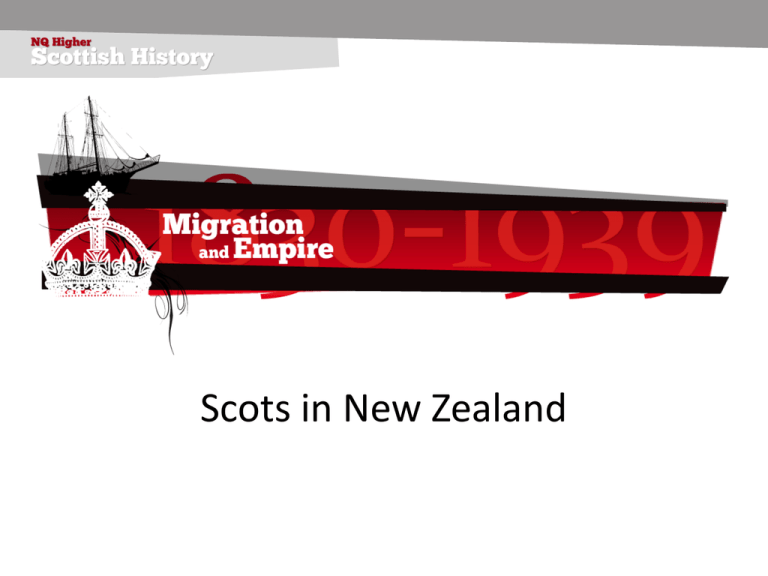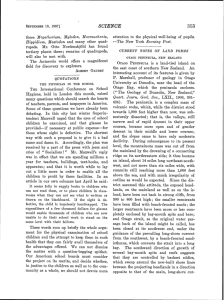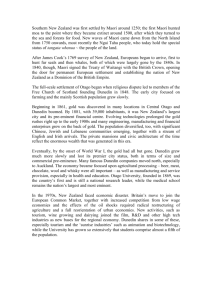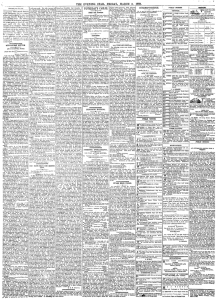Scots in New Zealand
advertisement

Scots in New Zealand Scotland’s emigrants had a vast influence on the creation of New Zealand’s culture: Religion Scottish settlers brought Presbyterianism with them. These groups tended to settle in the south. This religion is prevalent across New Zealand society and can be found in areas such as Southland and Otago. The Free Church of Scotland sponsored the Otago settlements in 1848. Two ships departed from Greenock, which led to the creation of this colony. One of the ship’s captains later became a superintendant looking after the province. Scottish influence is seen in the division of Otago into two areas: Wallace and Bruce (in 1876). The port in the south became known as Invercargill (Inver – river’s mouth and Cargill – the superintendant of Otago). Dunedin (Gaelic name for Edinburgh) became the principal town for Scottish settlement after 1848. This was established by the Free Church of Scotland. Captain Cargill became the secular leader and Robert Burn’s nephew, Reverend Thomas Burns, became its spiritual guide. Dunedin’s architecture was based on that of Edinburgh. Scottish influence on education When Dunedin was created, land was set aside for a university. In 1871, the Reverend Burns was named Chancellor of the University but he did not survive to see it open. Scottish influence on politics Many of the Prime Ministers of New Zealand have been of Scottish descent. They include: • • • • • • Robert Stout, who was born in Lerwick Thomas Mackenzie, who born Edinburgh George William Forbes Peter Fraser, who was born in Tain John Ross Marshall Edward Stafford, who served on three occasions and was born in Edinburgh. Many streets are named after key places in Scotland. They tend to be concentrated in the south of the islands. Below are some place names: • On the North Island – Hamilton and Napier • On the South Island – Dunedin, Invercargill, Balclutha, Lammerlaw mountains, Grampian mountains, Oban.








